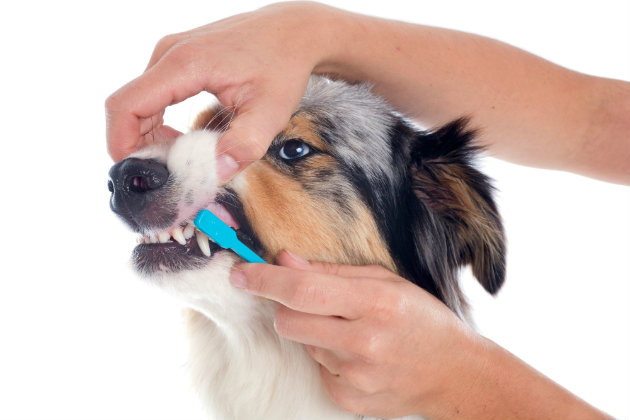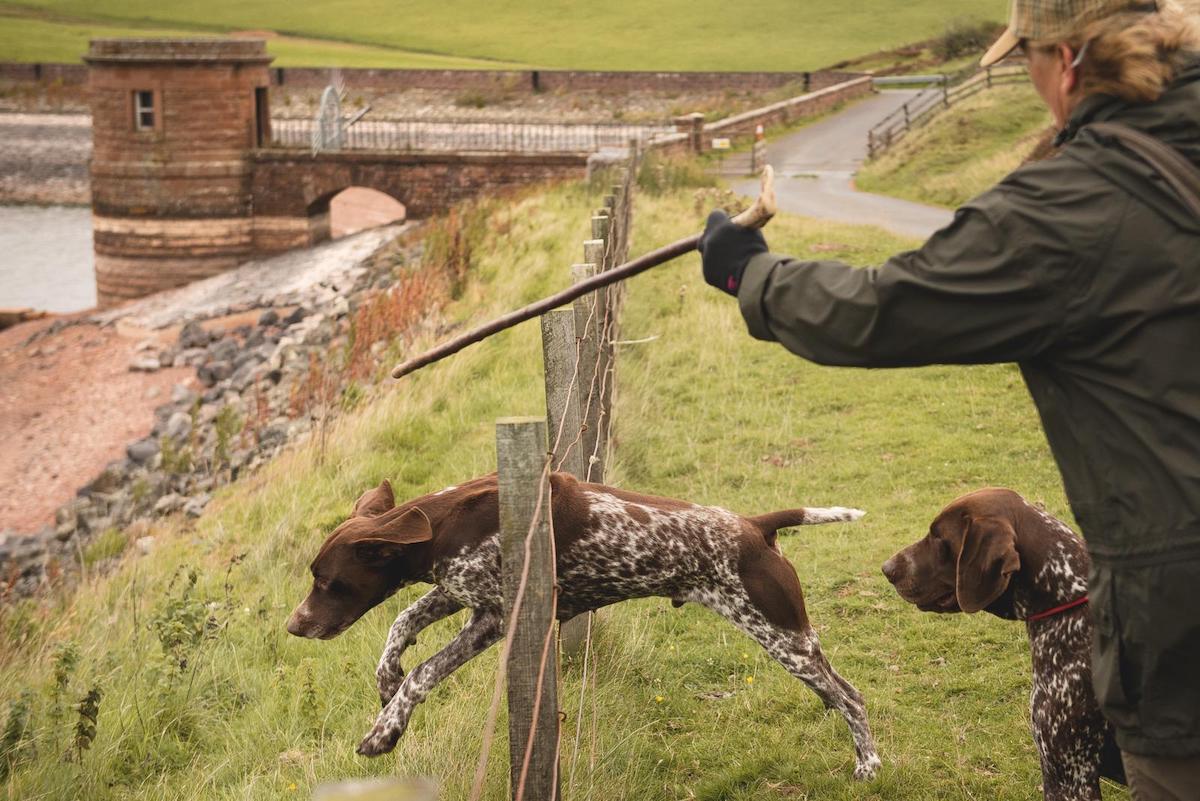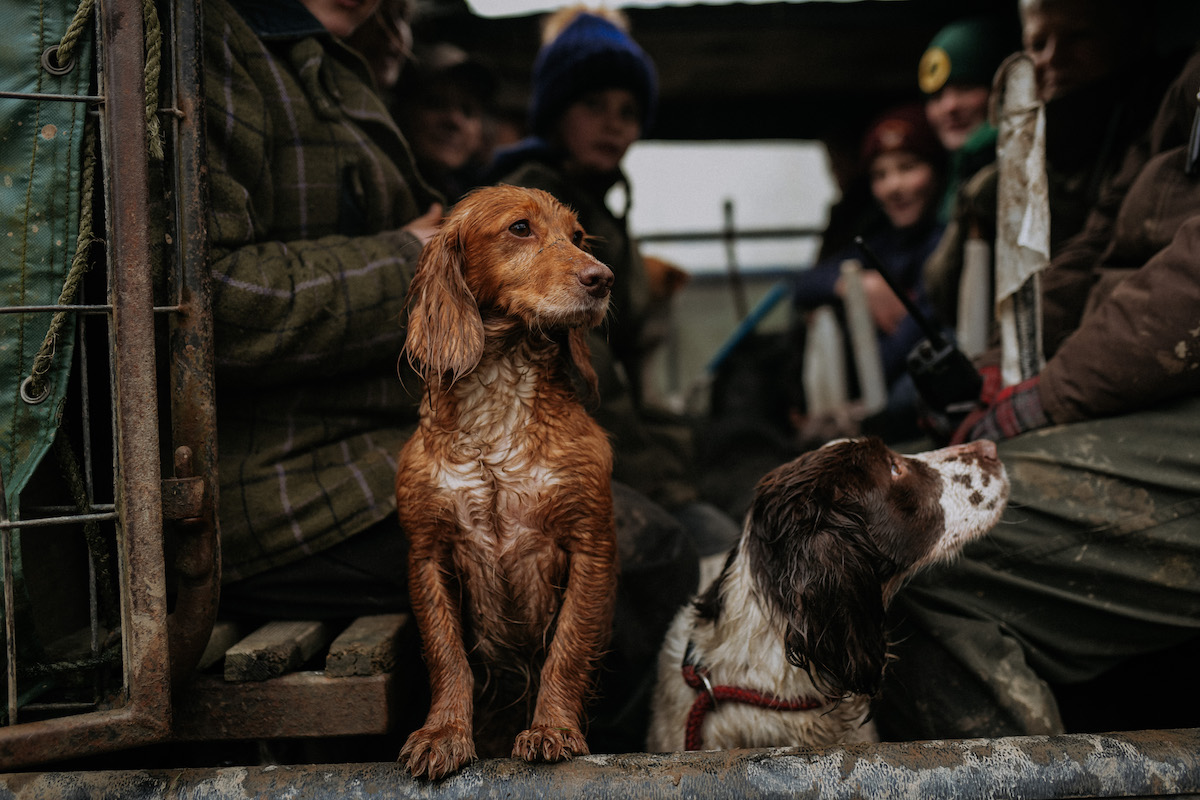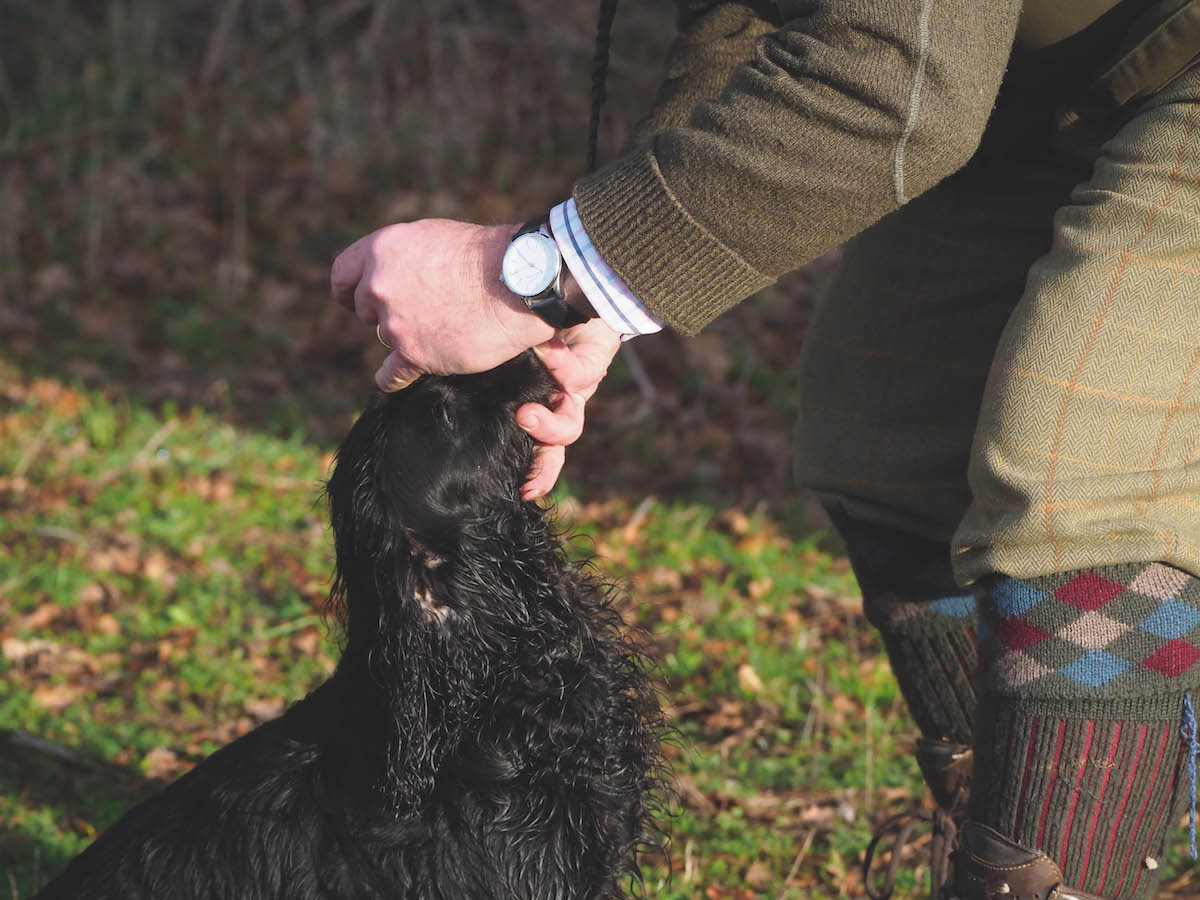Tips on keeping your dog’s teeth free from tartar
Can you advise on ways to reduce the tartar that tends to accumulate on dog's teeth?

Brush your dogs teeth with a dog-friendly toothpaste at least twice a week
Dog tartar removal and prevention
Dental disease in dogs is primarily caused by food particles and bacteria building up at the base of the teeth near the gum line, causing the formation of plaque. If this plaque is not removed, minerals in the dog’s saliva combine with the plaque to form tartar, which strongly adheres to the surface of the tooth and becomes increasingly difficult to remove. Tartar irritates the gums and causes further inflammation and infection. By limiting plaque as it forms, tartar development is greatly diminished.
Limiting tartar development
Feed your dog a vet-approved dental diet that slows tartar by mechanical or chemical means. Due to its abrasive action, kibble tends to deter the build-up of tartar but feeding dry food alone is not sufficient, as it does not clean your dog’s teeth at the gum line. Raw meaty foods will help as raw meat contains natural enzymes that get rid of tartar and do not stick to the teeth. Canned food and dry feed soaked and fed as a mash tend to stick to teeth and can exacerbate the build-up of tartar.
Yes – you should brush your dog’s teeth
Brushing your dog’s teeth at least twice weekly is one of the most effective ways to remove plaque before it turns into tartar. Do not use human toothpaste as it can cause stomach upsets. Start by putting the paste on your finger to clean your dog’s teeth and gradually introduce a toothbrush as your dog becomes accustomed to the sensation.
How can I keep my dog’s teeth clean?
A: The build-up of tartar on dogs’ teeth seems worse in those dogs that are fed on all-in-one kibbled dog foods, especially when it…
Can you cure bad breath in dogs? Here’s how to improve matters
Bad breath in dogs Q: Can you advise on the cause of my dog’s bad breath? I have tried brushing…
Why you should never ignore a dog’s broken tooth
A vet explains why one reader was charged £150 to have his dog’s molar removed
Oral rinses and chews can help
You can also purchase canine “oral rinses” that you add to drinking water. These help prevent plaque by reducing the bacterial count in the mouth, often resulting in improved breath.
Offer your dog chews that are specifically designed to help reduce or remove mild tartar accumulation. Never let dogs chew on bones, dried horse hoof, antlers or nylon toys as these may fracture a tooth.

Tartar on a dog’s teeth
Canine scaling and polishing
If your dog’s breath smells it indicates bacterial infection, which can be quite debilitating and painful.
In this case, take your dog to the vet to have his teeth checked and deep-seated tartar removed. Professional scaling and polishing does the best job and many older dogs flourish after this has been done, especially if the odd infected tooth is also removed.











